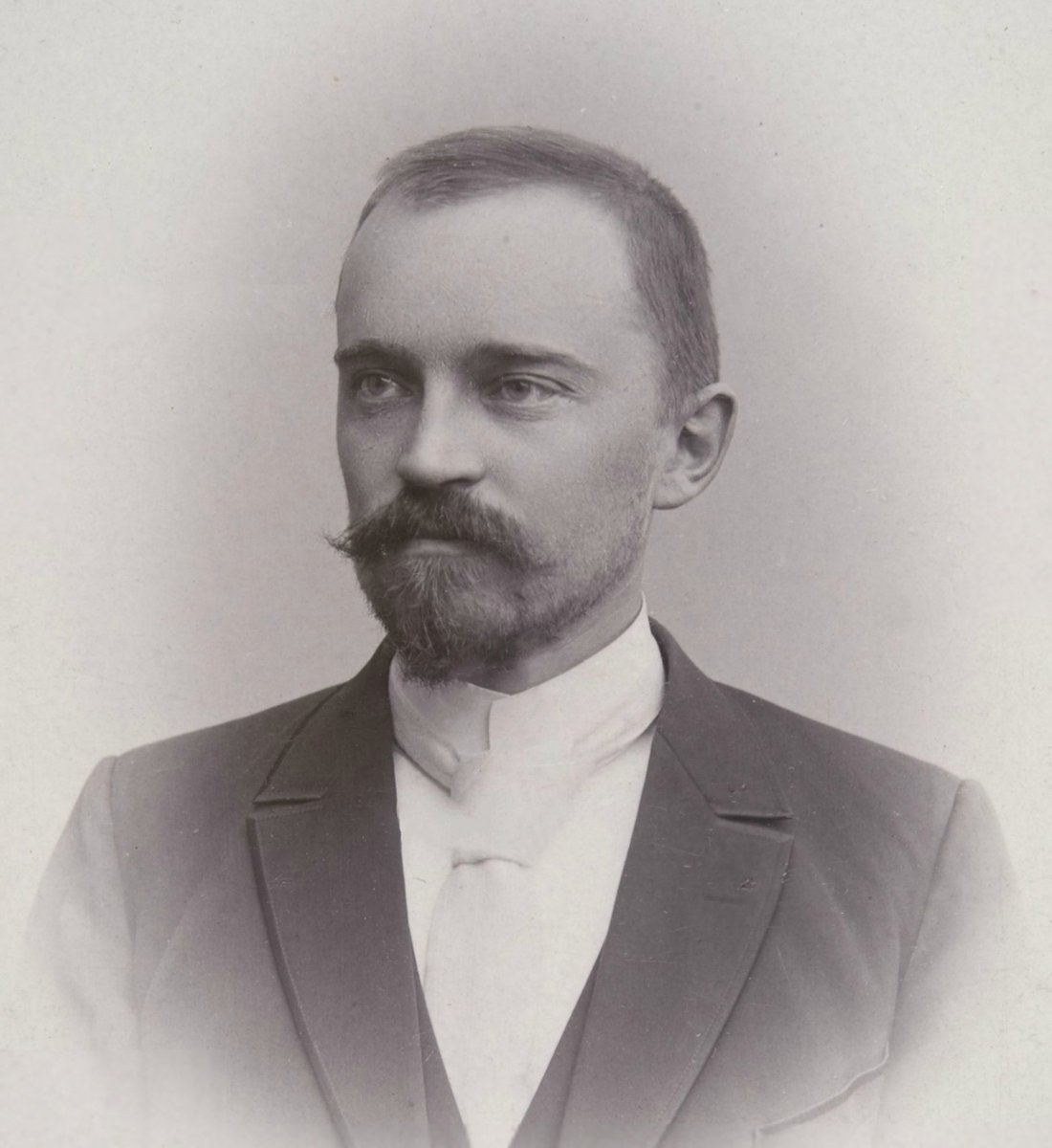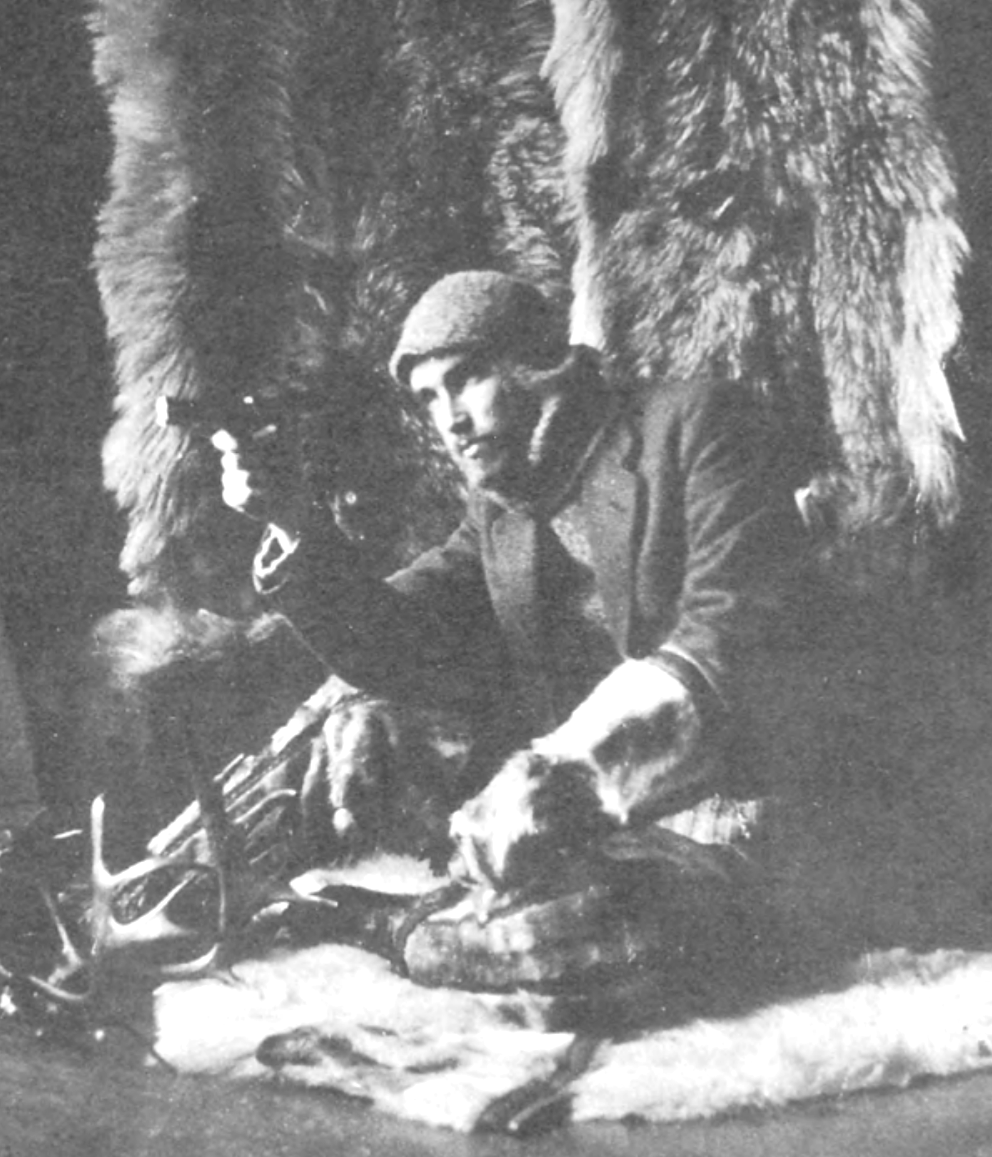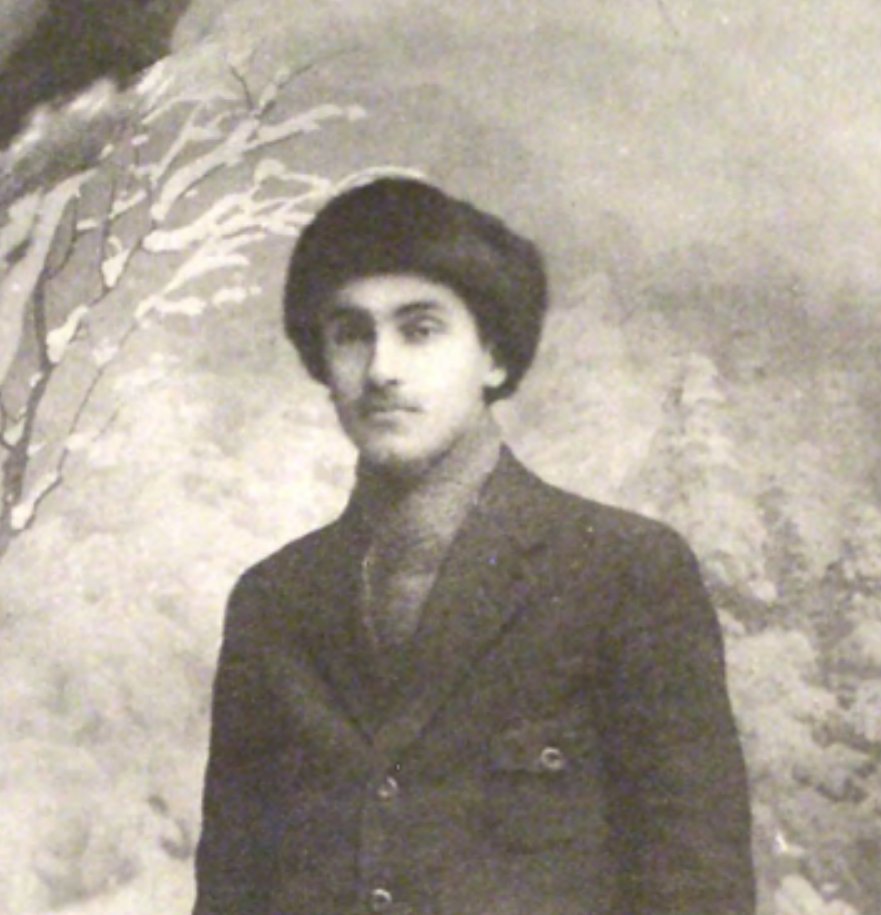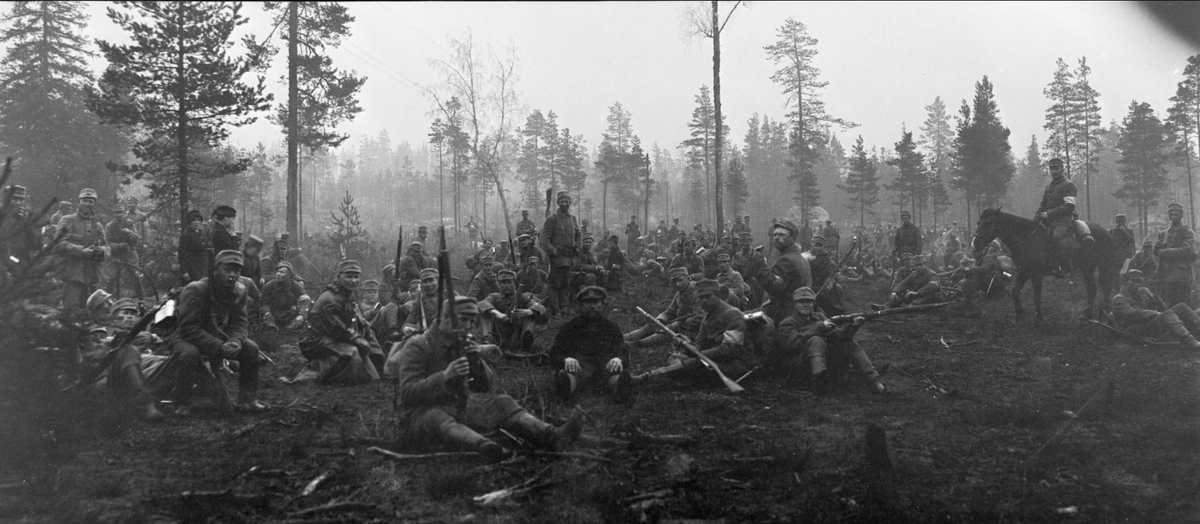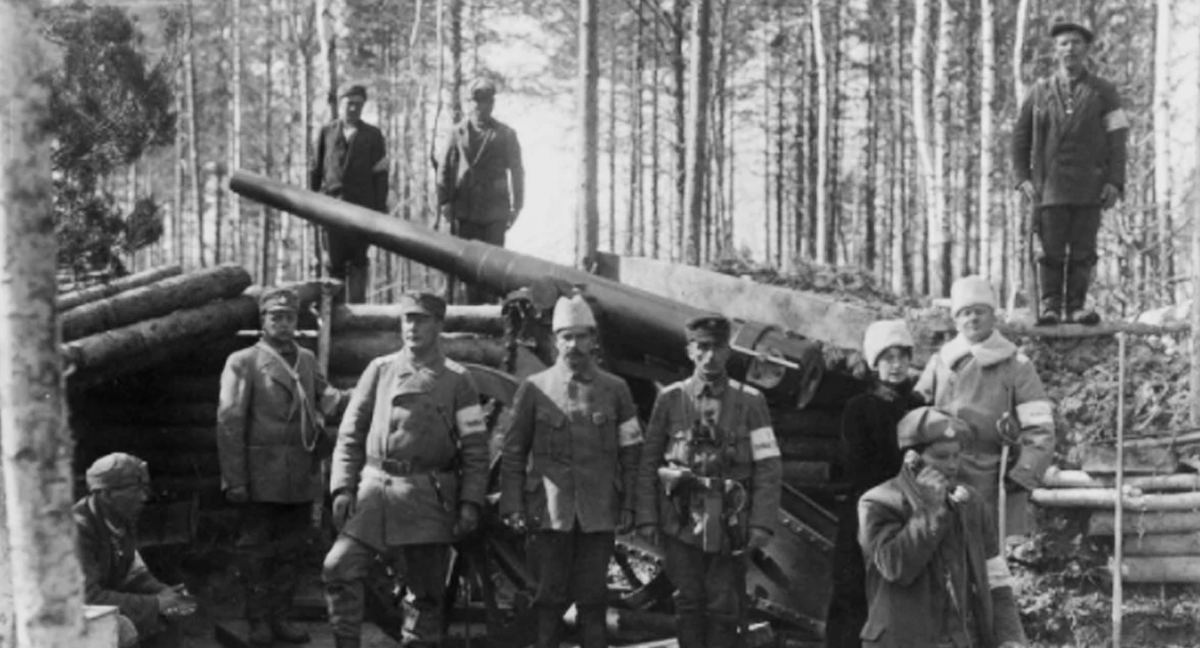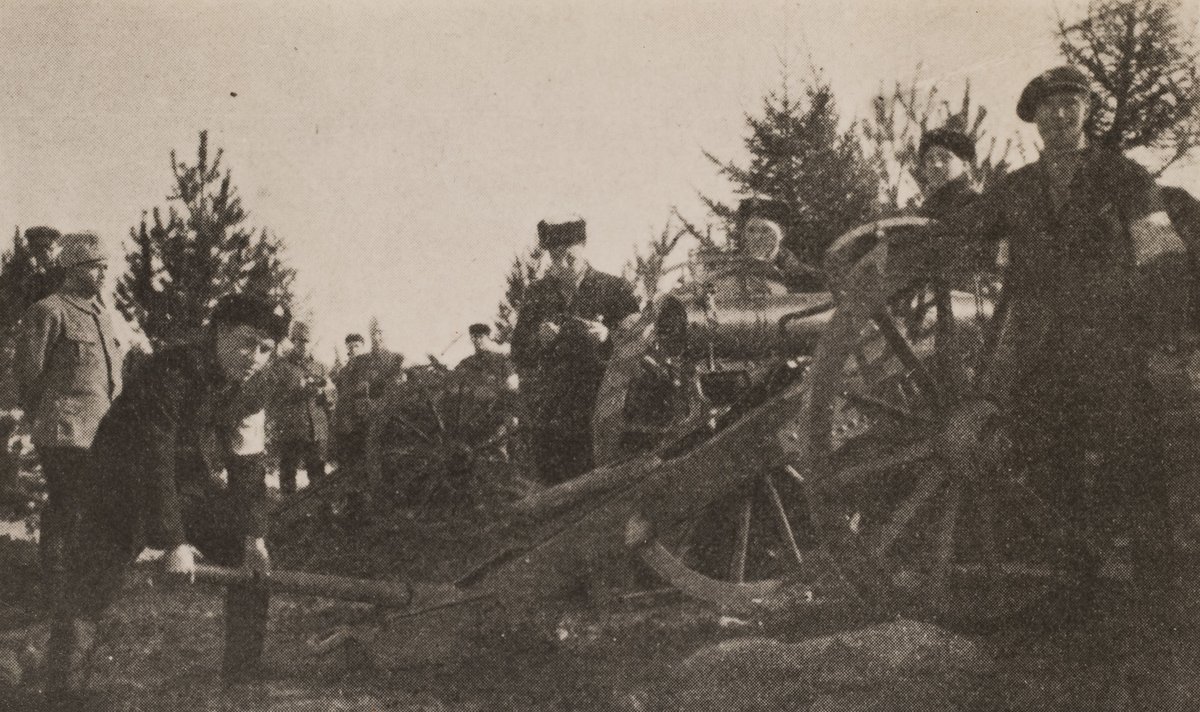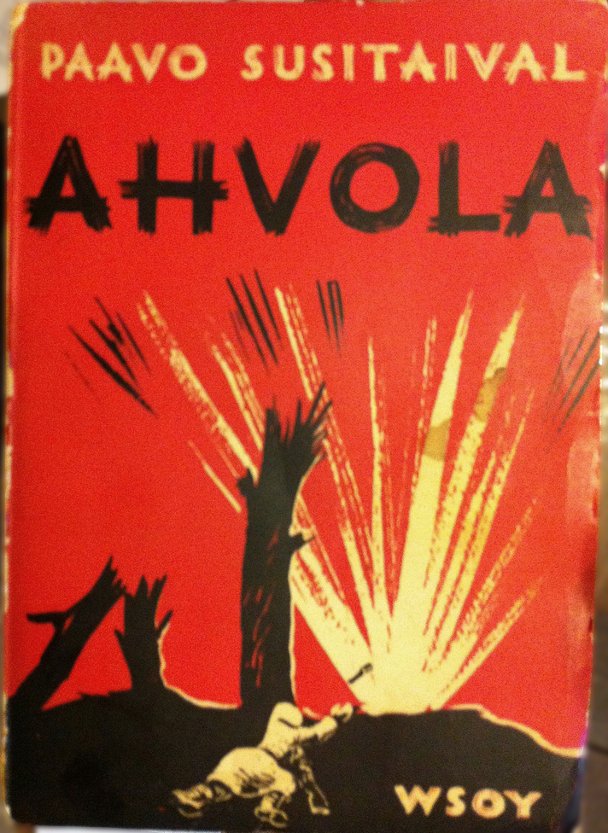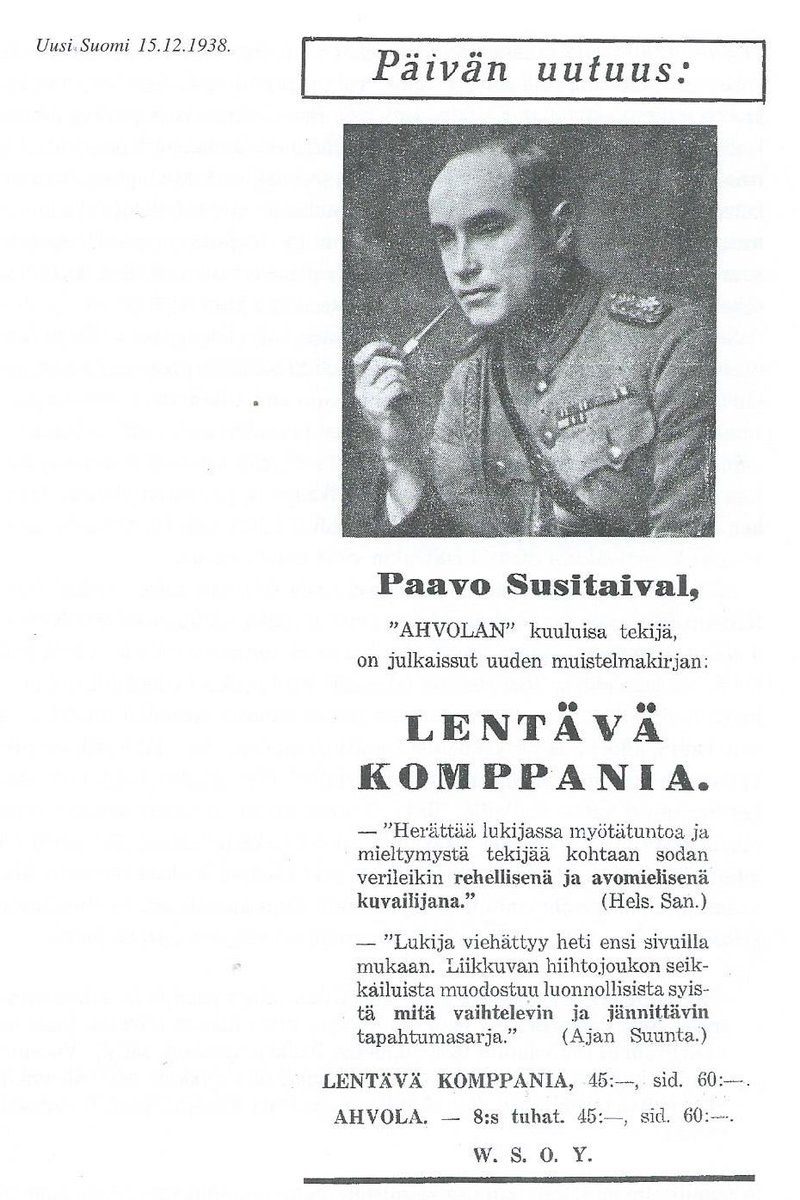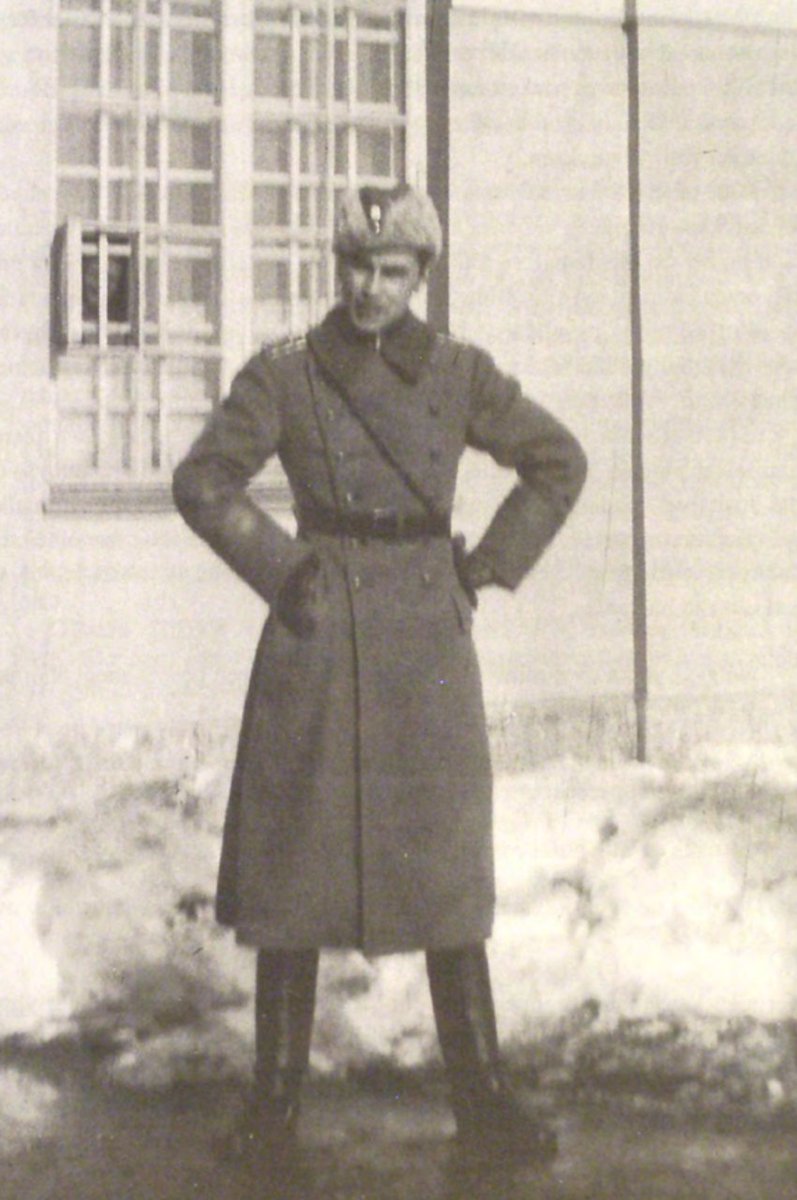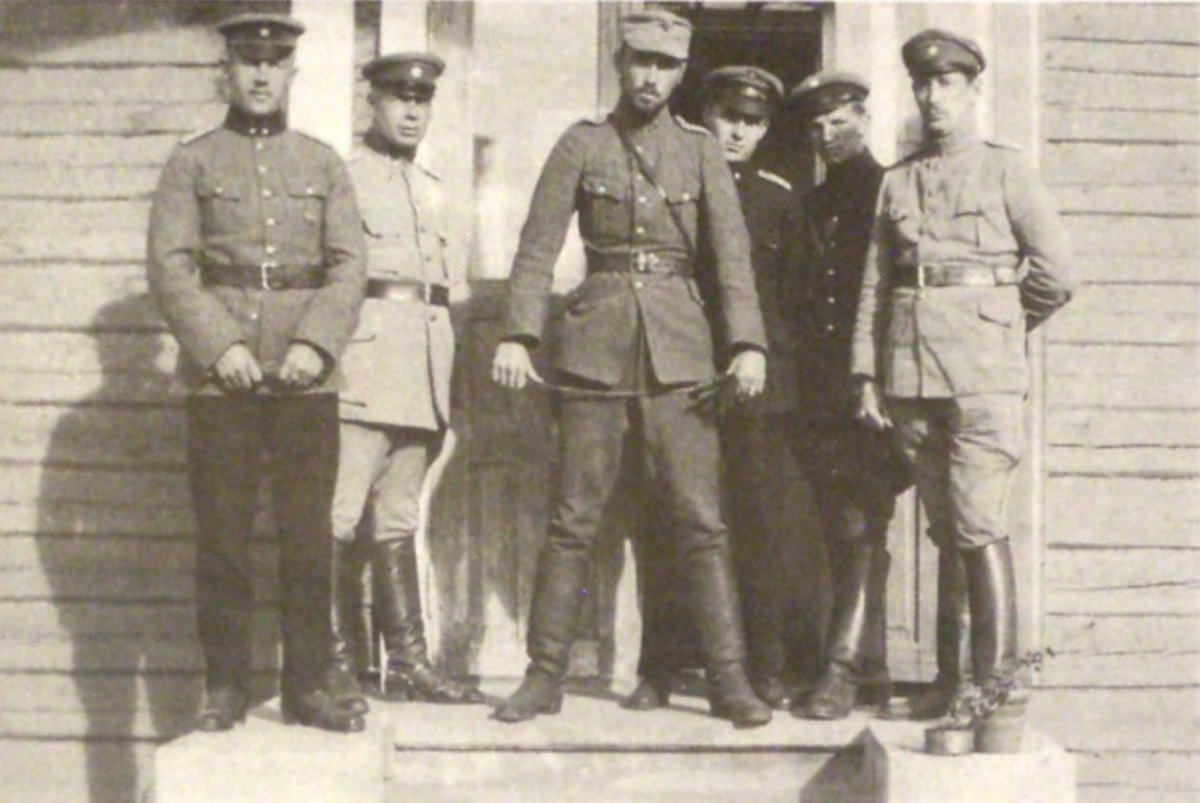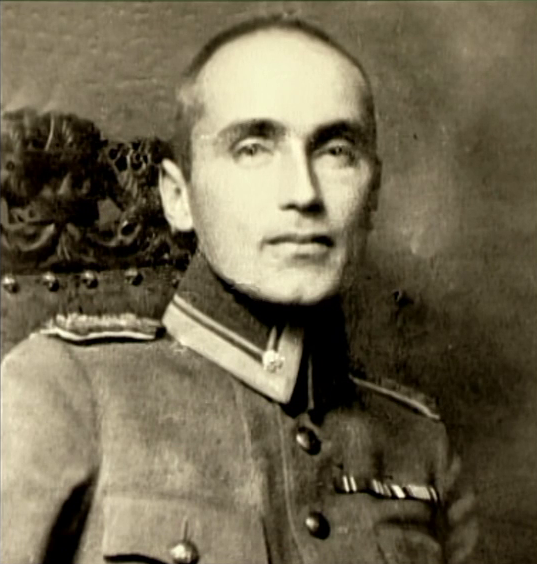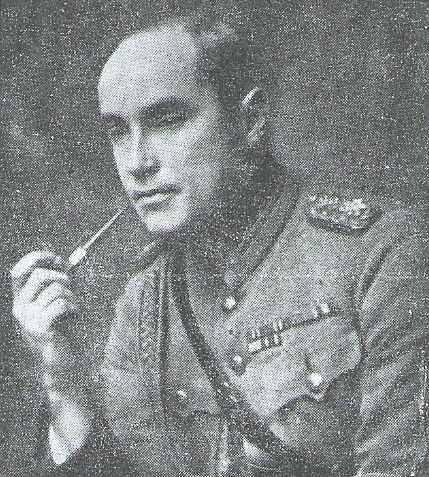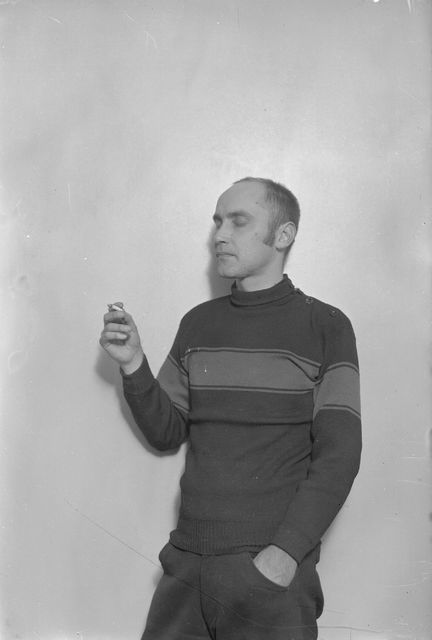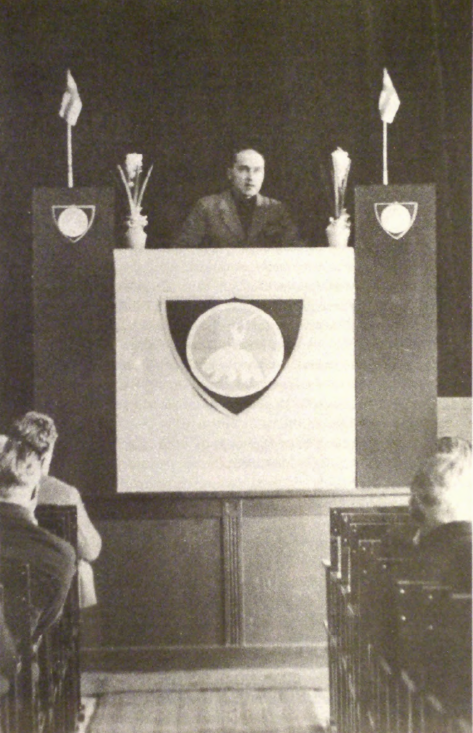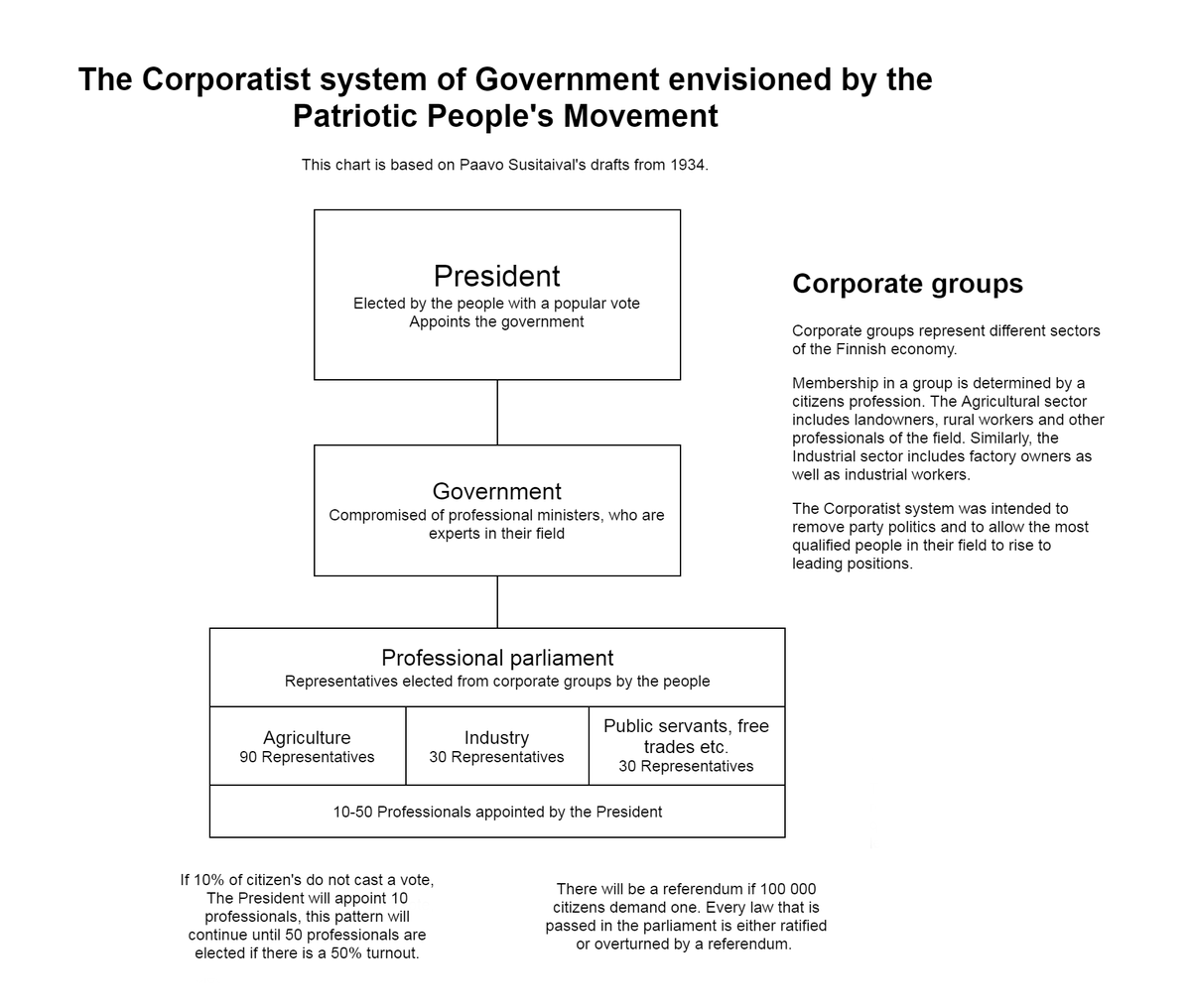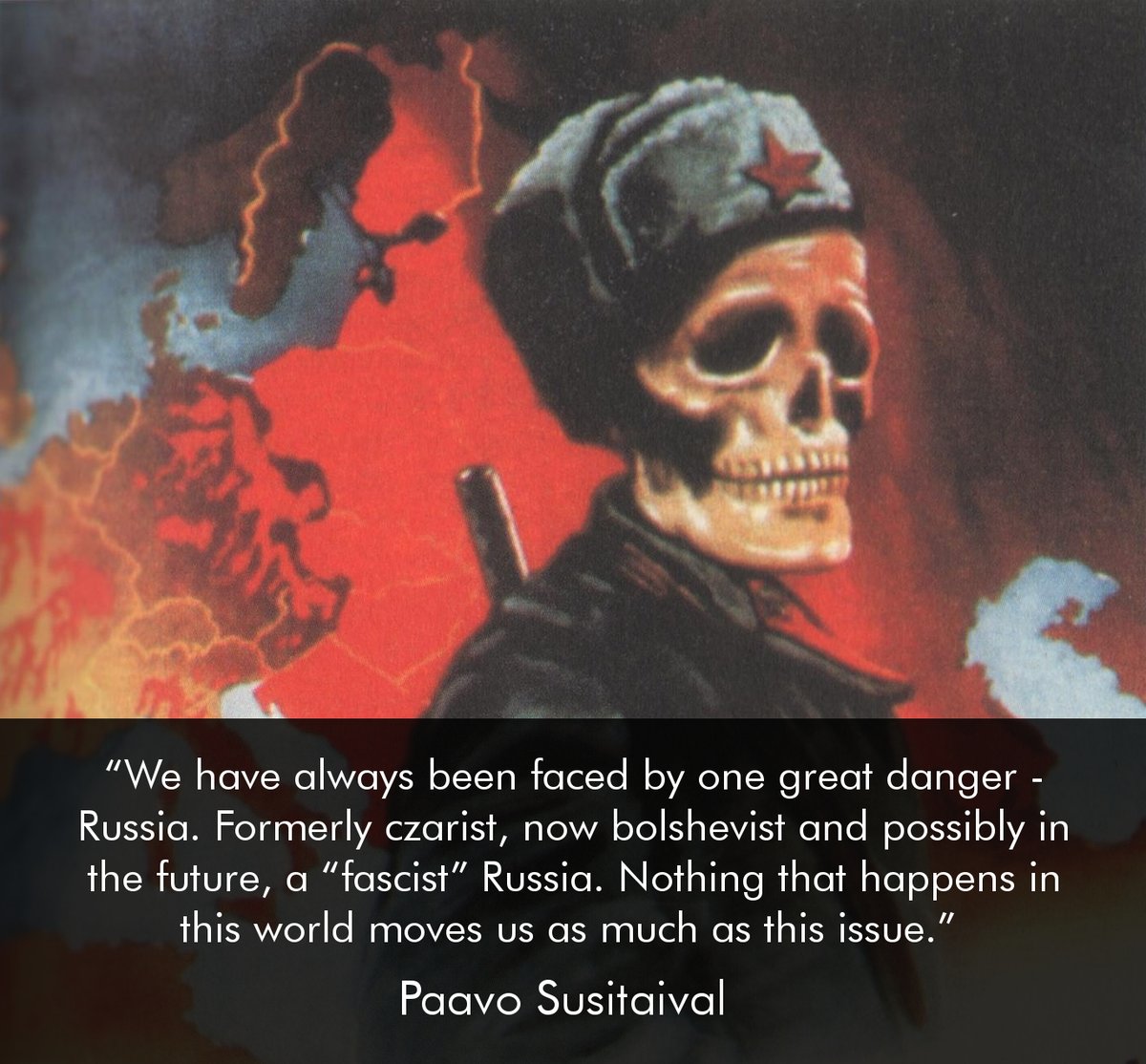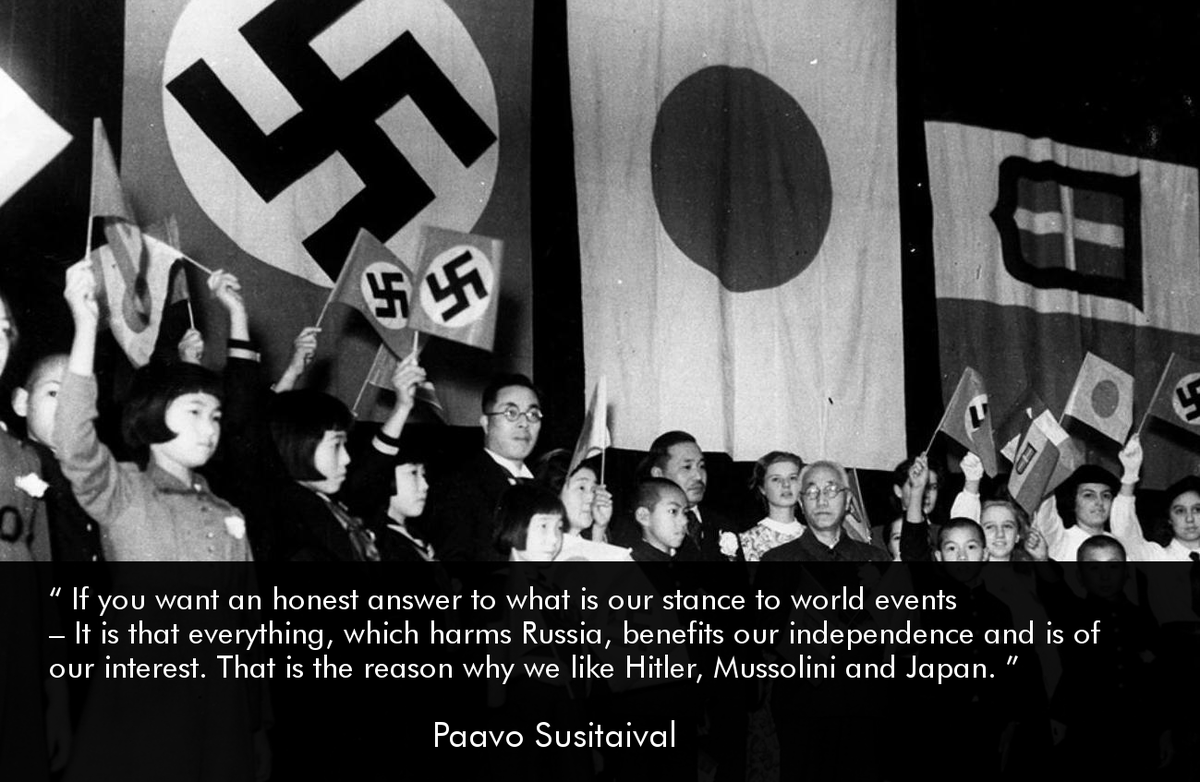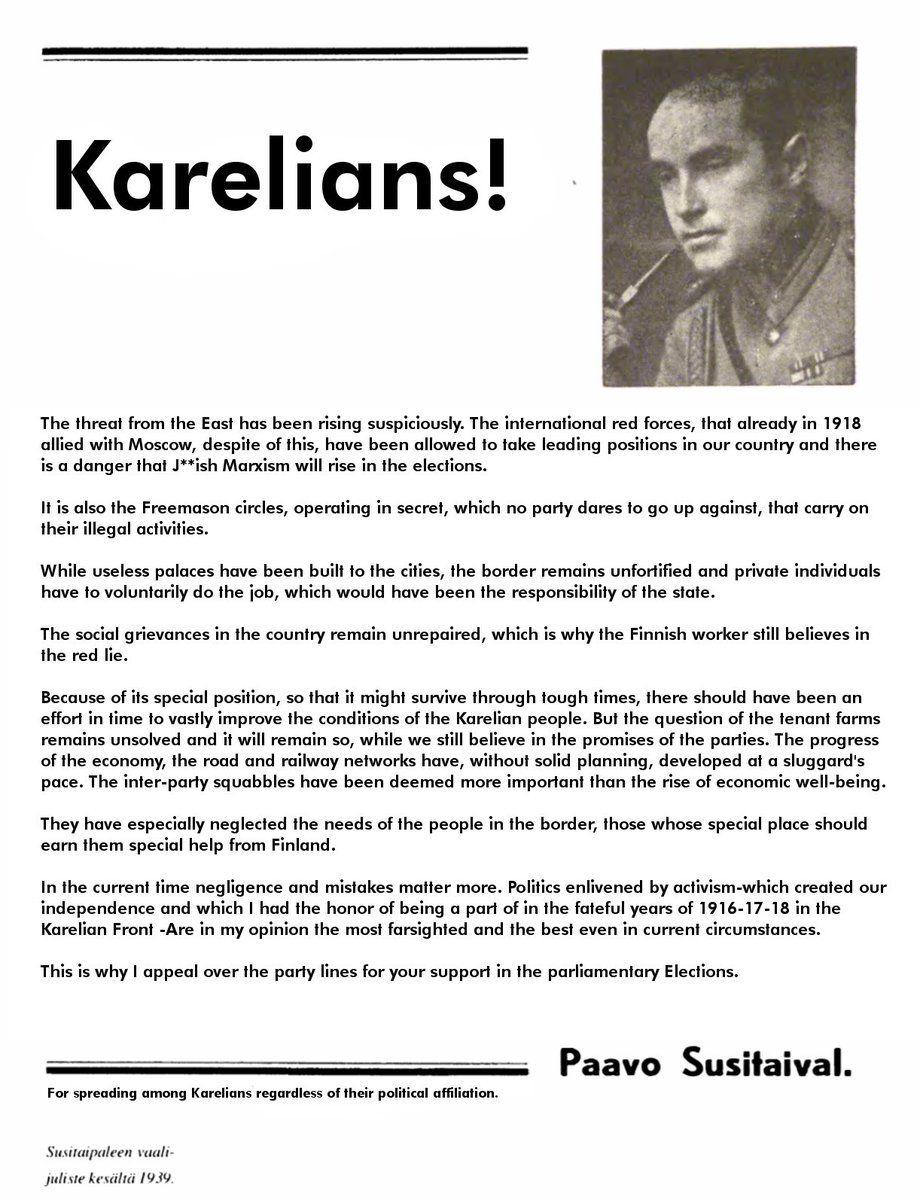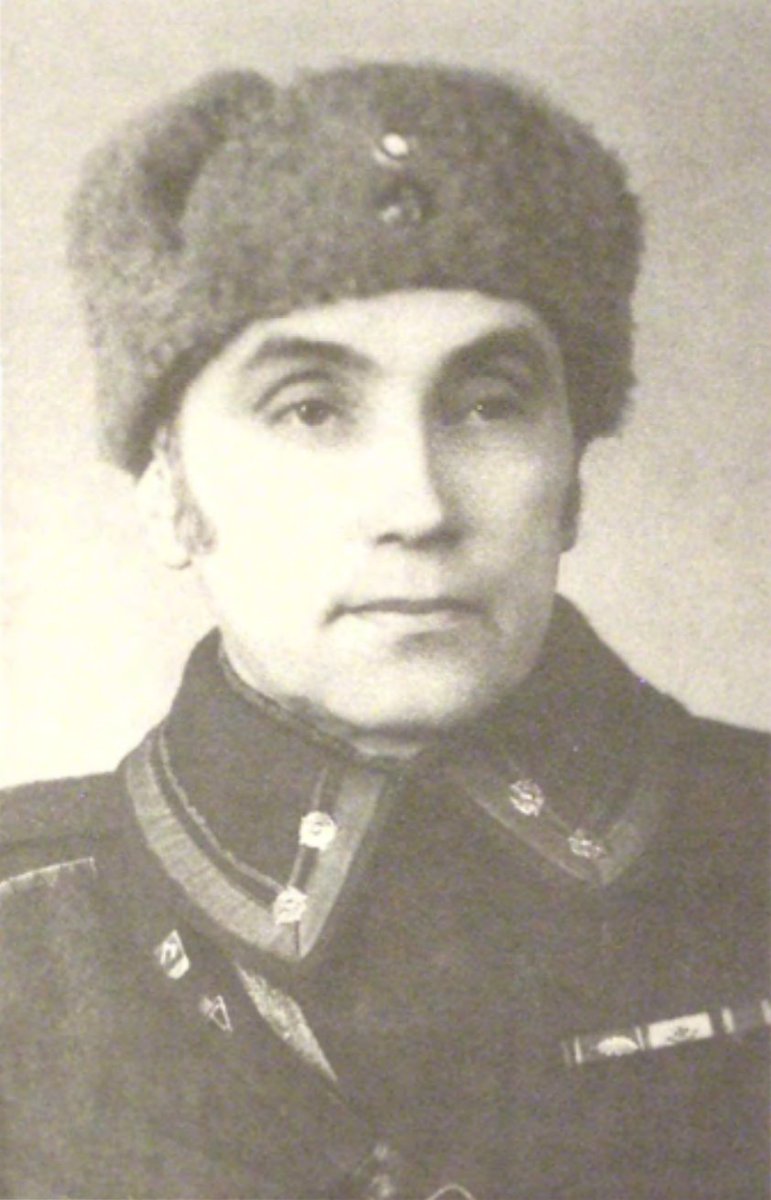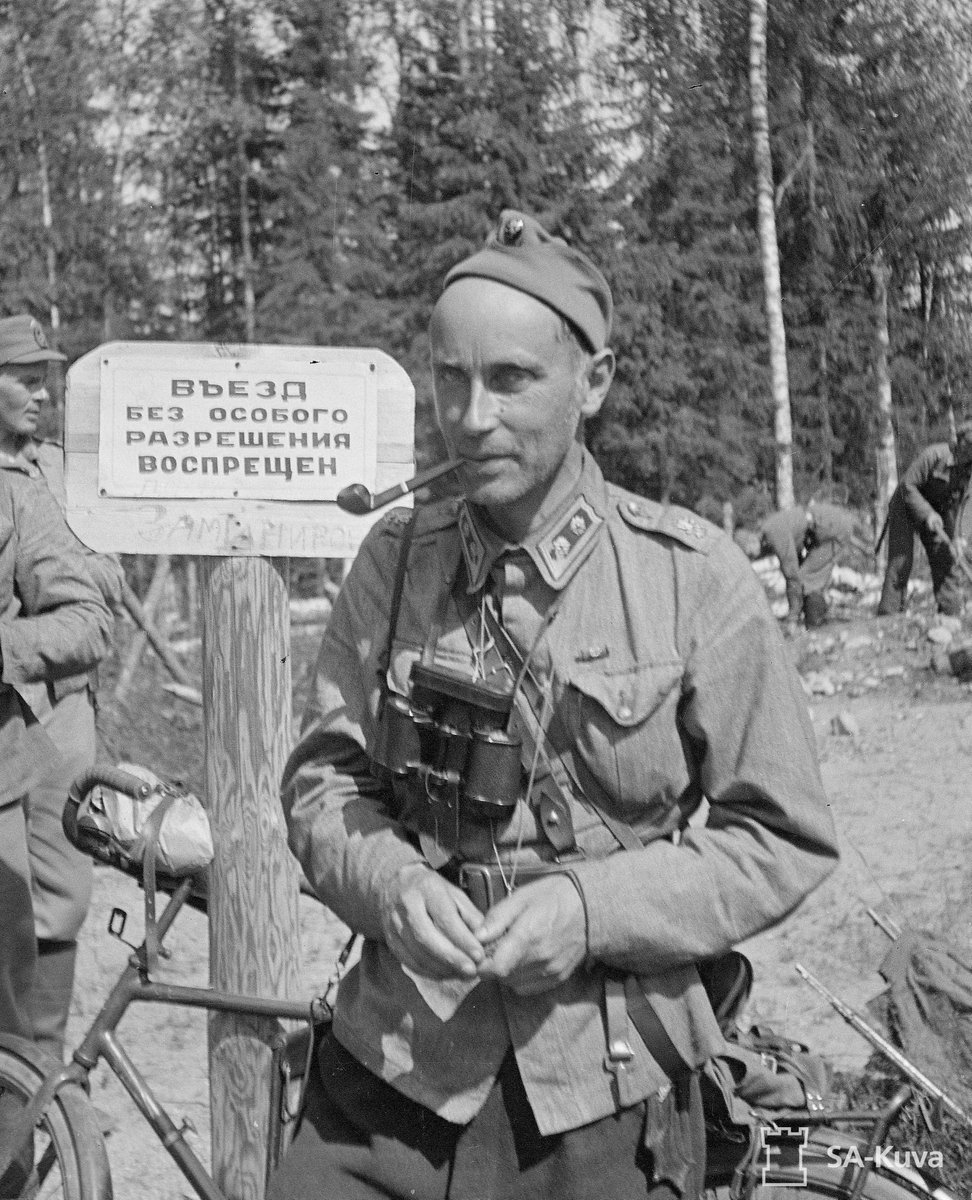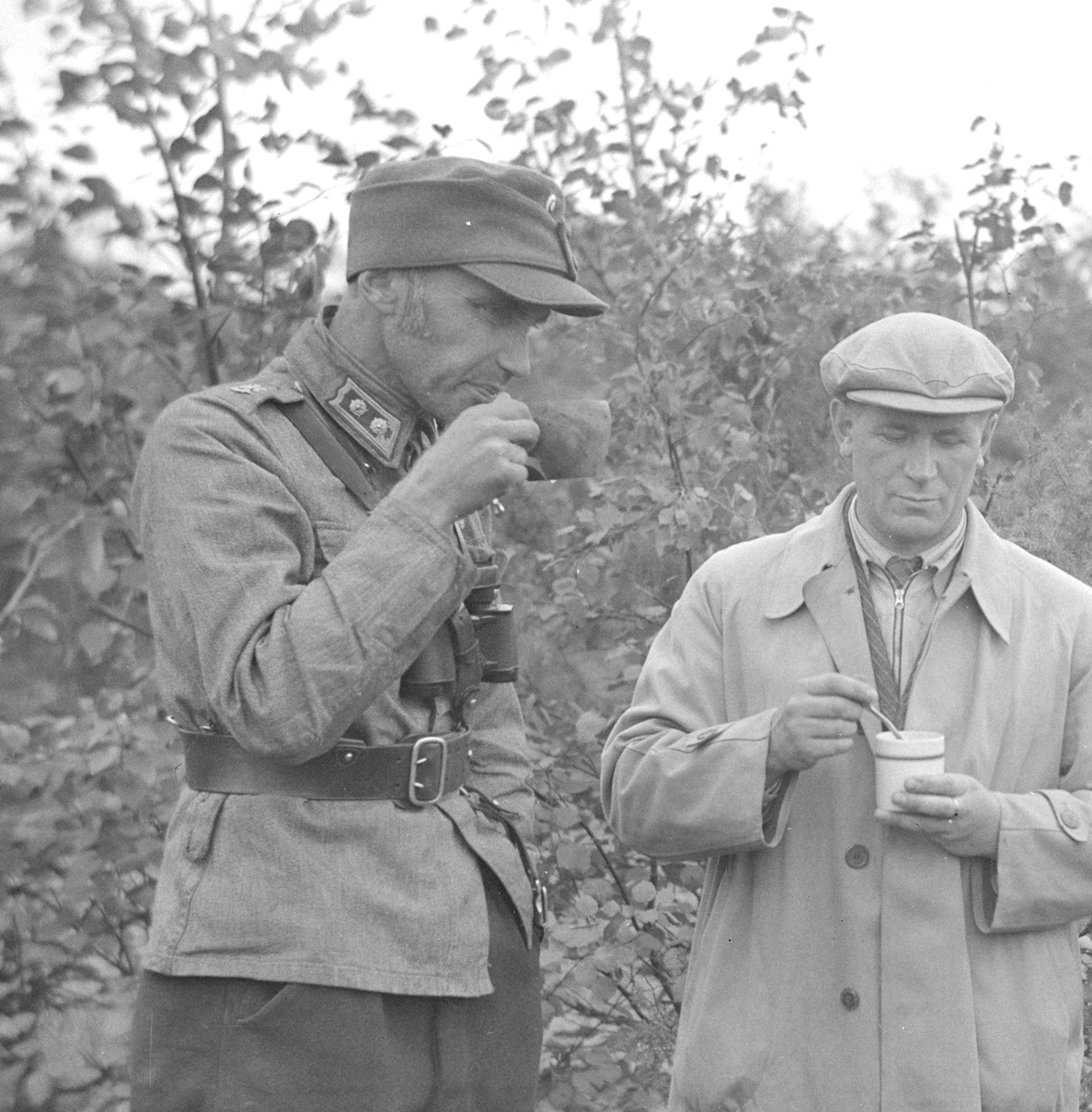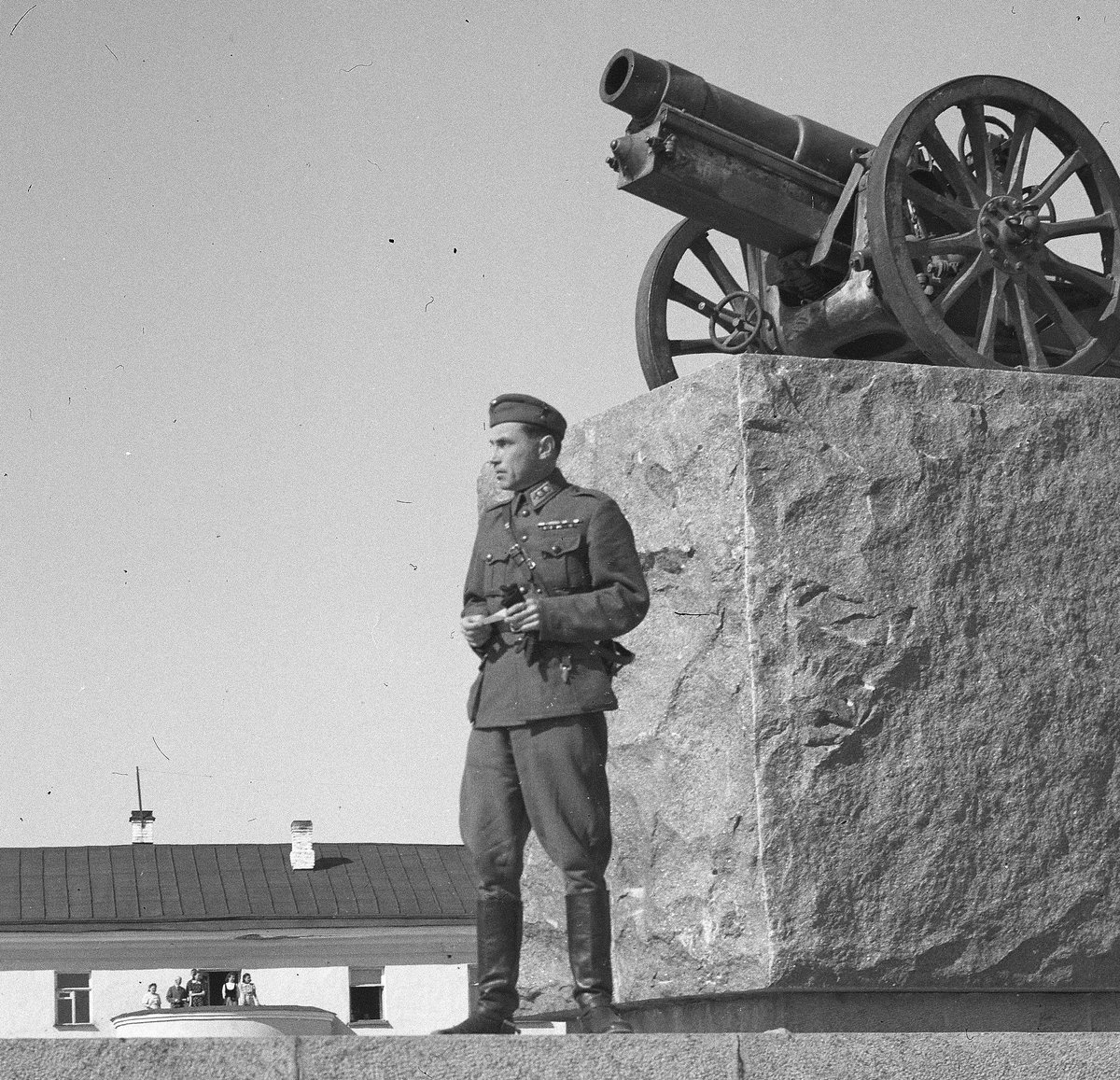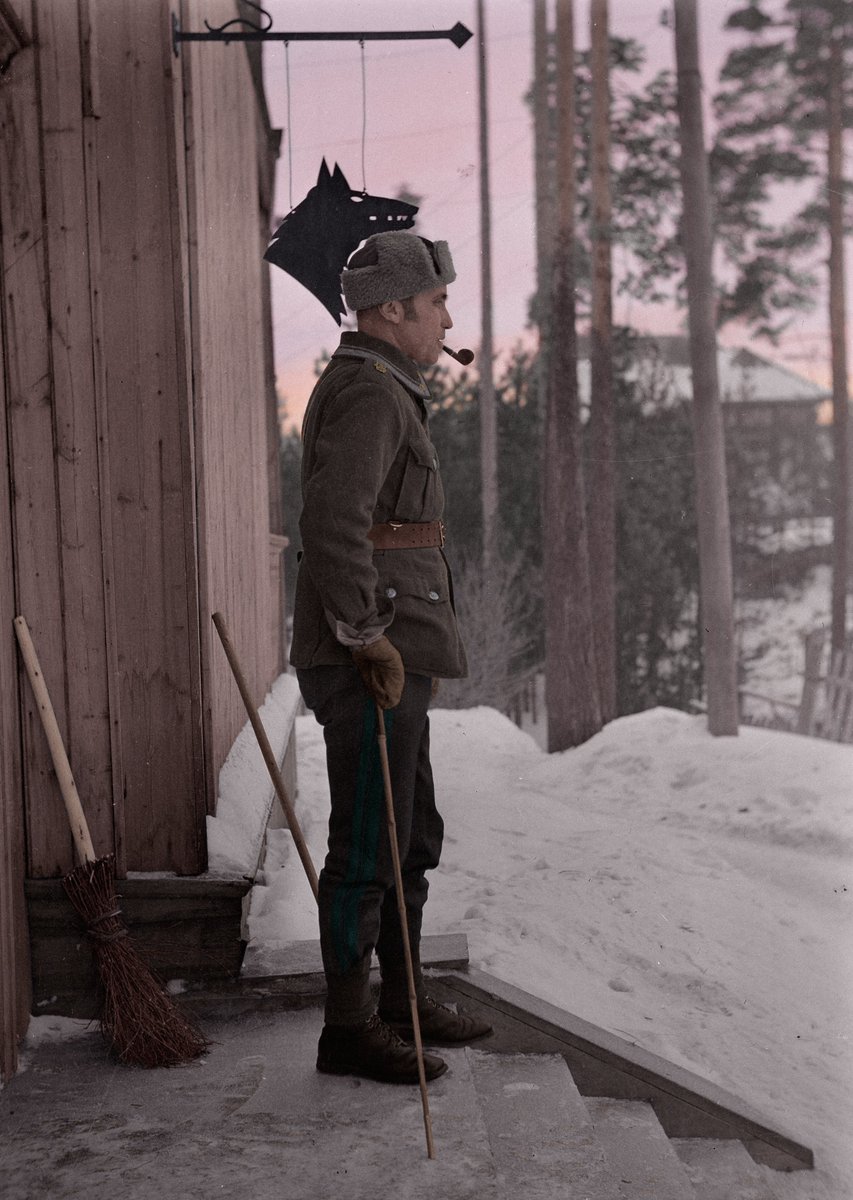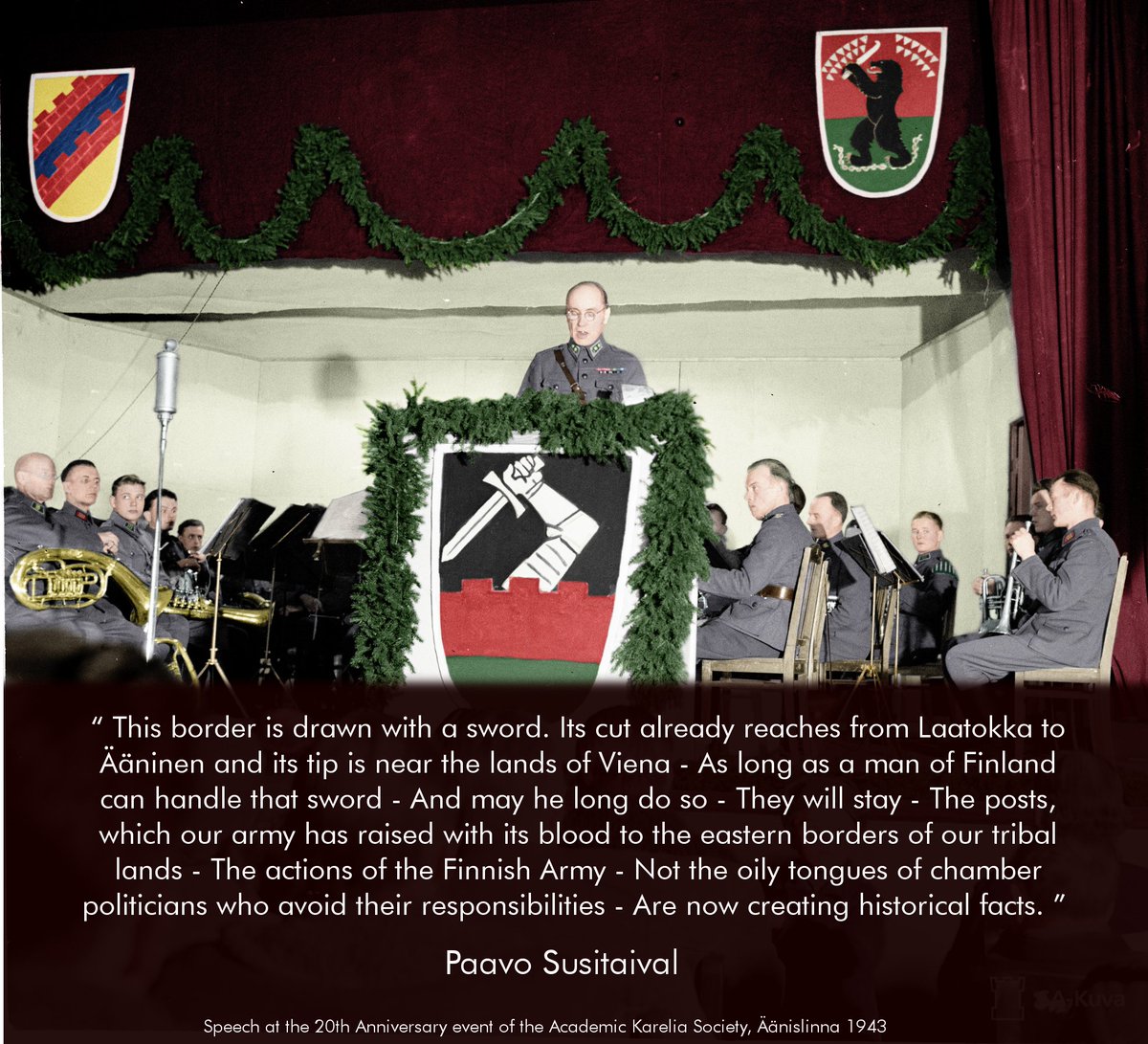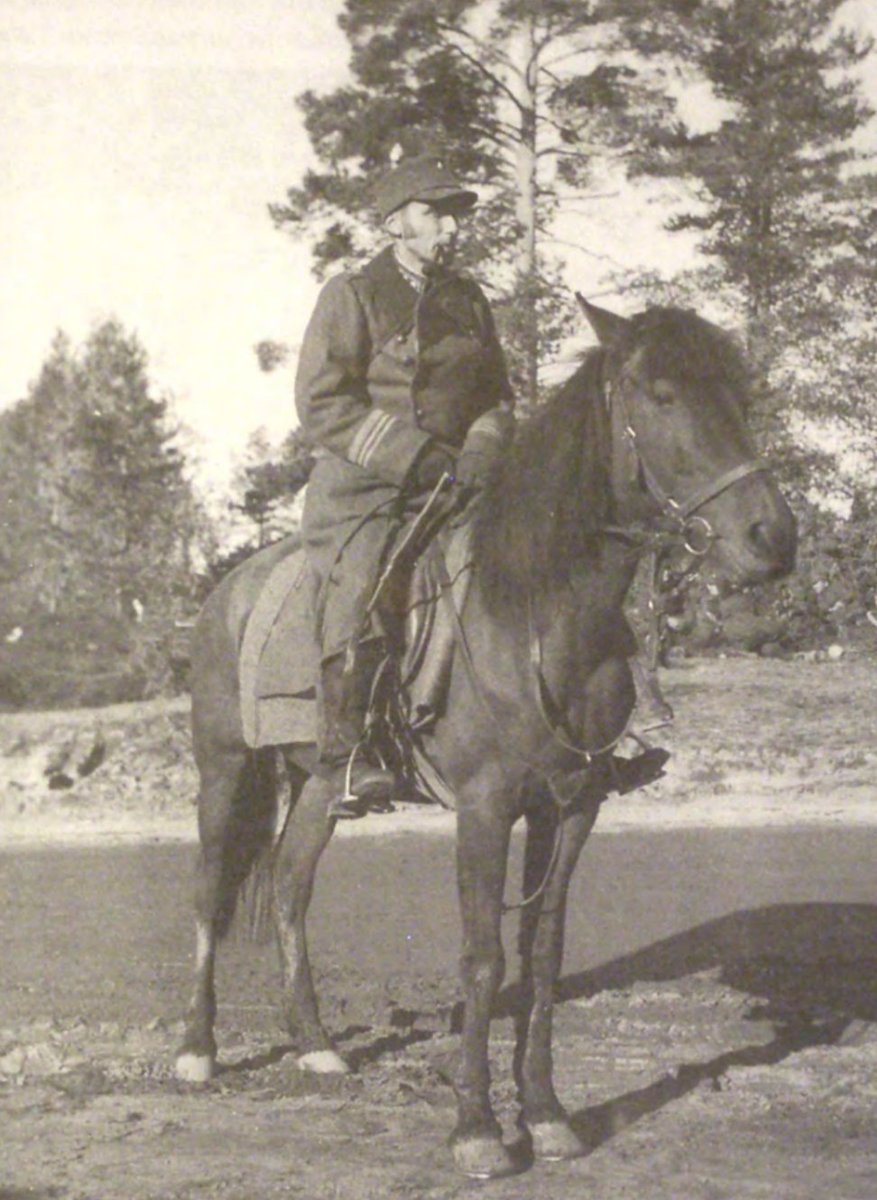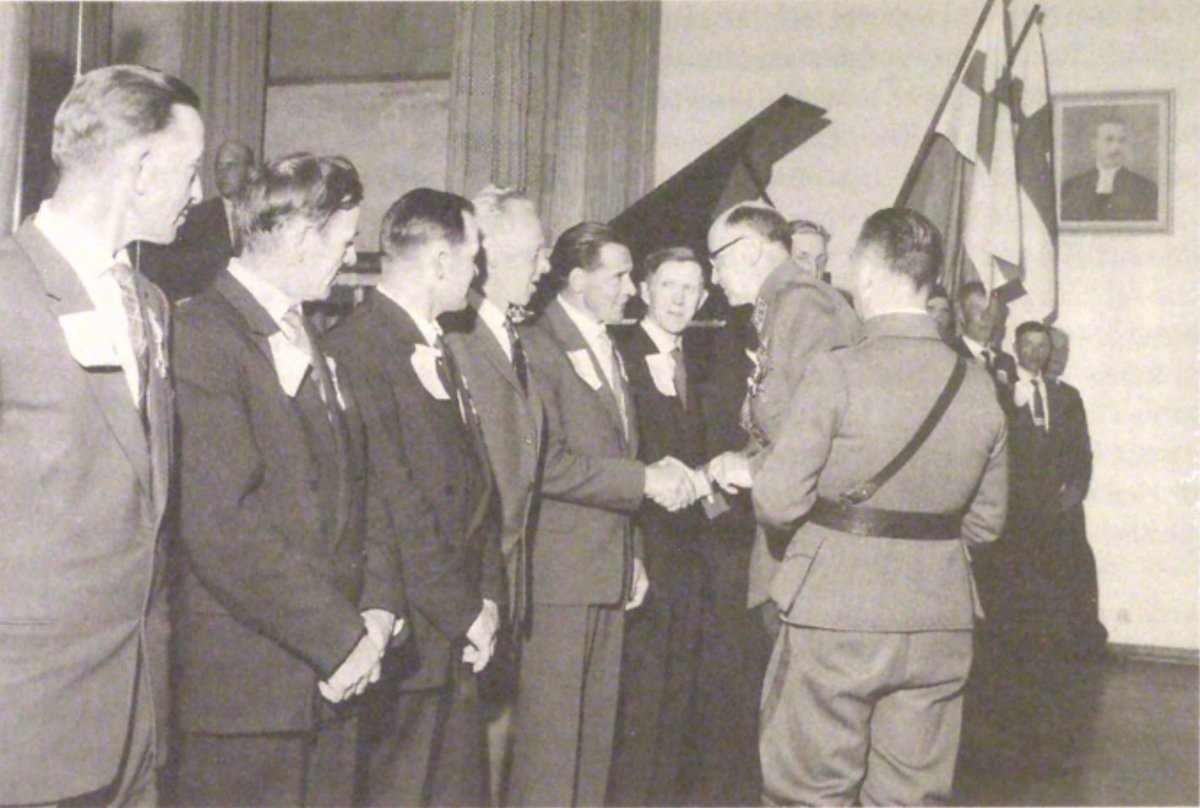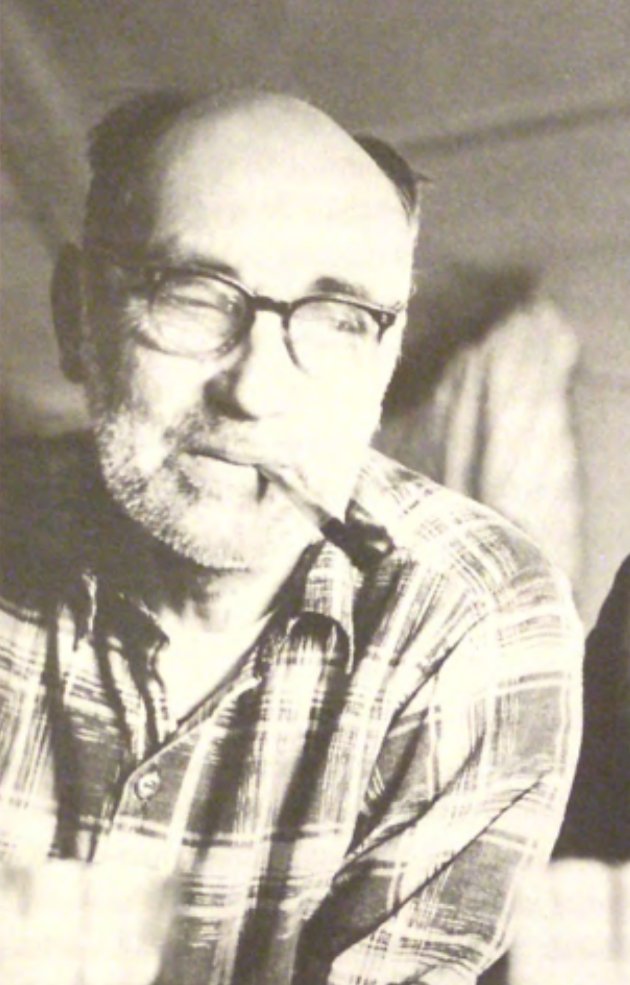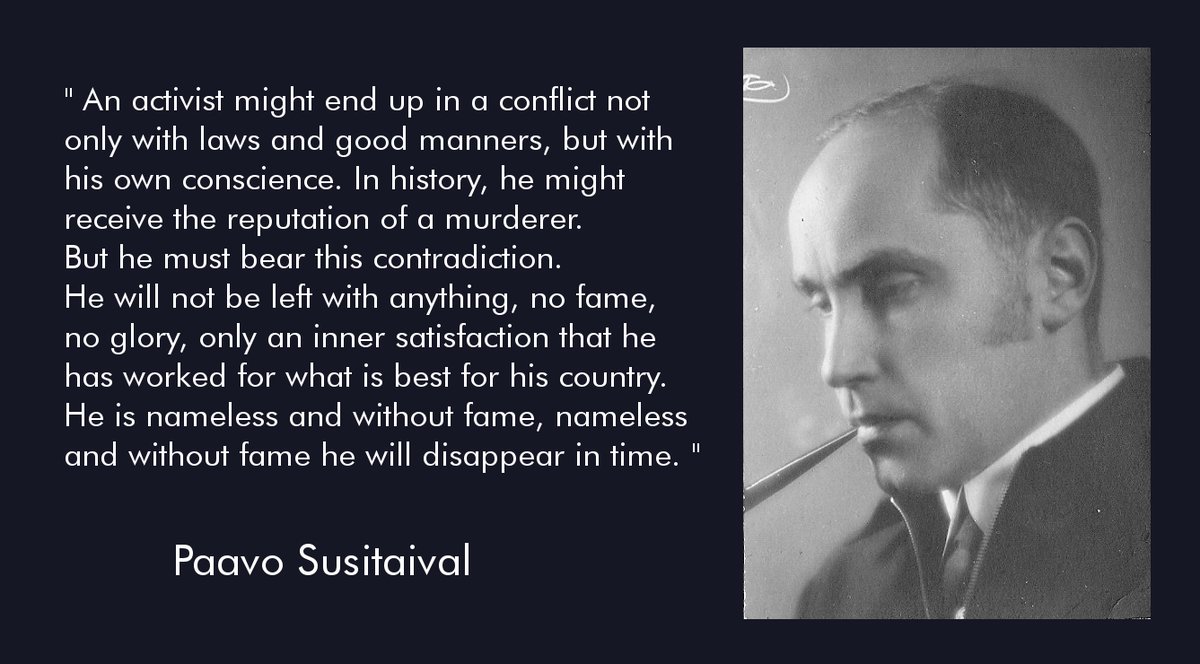Paavo Sivén (later Susitaival) was born into a family of Nationalist activists, If you want to know about his childhood and family, check out my thread on his brother Bobi. 1/32 https://twitter.com/m39_respecter/status/1196450410678104064">https://twitter.com/m39_respe...
Paavo´s father, V.O. Sivén was a nationalist activist who instilled in his sons the hatred for Russians and the importance of direct action. Paavo would follow his father’s footsteps and get involved in the Jaeger movement. 2/32
Paavo wanted to travel to Germany himself, but his father forbade him from doing so. He would stay in Finland, taking part in recruiting and hiding of Jaeger volunteers, smuggling of weapons and in the formation of the Civil Guards in eastern Finland. 3/32
On the 20th of January 1918, the civil war broke out in Viipuri. All Civil guards were ordered there and Paavo Sivén’s “flying unit” was immediately on the way. He and 26 other men commandeered a train and on their way to Viipuri, recruited a force of 500 men. 4/32
When they arrived to Viipuri, they found themselves surrounded by Reds. The white forces would retreat and form a new frontline. Here Sivén led a ski platoon, waging guerilla warfare against the red forces. 5/32
During the fighting in the Karelian front, he would be promoted to Captain, despite having no formal military training. He was possibly promoted by mistake, but he retained his rank. The 22-year old captain would later lead his unit in the battle of Ahvola. 6/32
Ahvola became known as Finland’s Verdun; the fighting was trench warfare where heavy gun- and artillery fire inflicted large casualties. Susitaival would later recount his experiences in his books. 7/32
His best-selling book Ahvola (1937) was praised for its storytelling, realism and descriptions of the psychological effects of war. It has been compared to Ernst Jünger’s Storm of Steel. 8/32
Sivén had not wished for the Civil war. Before the hostilities he had worked with socialists in Independence activism. He wanted the red leaders punished but didn’t hate the average people of the ranks. 9/32
When the war ended, Paavo Sivén continued his career in the army. After his brother’s suicide in 1921, he became embittered towards the Finnish government and resigned. He would then travel to Germany for secret military training. 10/32
After his return, Sivén worked in the Civil Guards as an Instructor. When he was teaching a class of Fennoswede officers, they refused to attend church service with a Finnish class. This event was a spark which led to him Finnicizing his name to Susitaival, “Wolf’s Path”. 11/32
In the 20s, Susitaival’s politics became increasingly radical. He felt that the activists that had won Finland its independence had been swept aside and Finland was now ruled by a class of career politicians and swindlers. 12/32
Susitaival was a staunch opponent of Freemasonry. He wrote about their involvement in revolutions, occult practices and their connections with the elite. Although he was ridiculed in the press for his beliefs, his actions led to an anti-mason ban in the Finnish officer corps. 13/
He would also take part in the Lapua Movement, joining the Peasants march into Helsinki. After the failed Mäntsälä rebellion, he was imprisoned and lost his position in the civil guard. He received no pension and his family lived in financial difficulties. 14/32
When his sentence ended, he began working for the newly founded Patriotic People’s Movement. Susitaival’s first task in the movement was creating its organizational structure, taking inspiration from the NSDAP. He also designed the organization’s uniform. 15/32
He was a prominent writer and a speaker who inspired the youth and railed against politicians. His fiery speeches led to several legal cases against him and he would sit in prison time and time again. 16/32
Susitaival was inspired by Italian Fascism and he outlined a corporatist system in Finland. He wanted professionals to replace careerist politicians and create national unity. He opposed both Liberalism and Communism. 17/32
His most important issue in politics was the threat of the Soviet Union. He criticized the Western orientation of Finnish defense policy, demanded that Finland raise its defense budget and that it would make a defense pact with the Axis powers. 18/32
He also admired Japan because it opposed Russia in the east. He believed the Japanese militarist state was a model which Finland should follow. He even befriended Japanese military attaché in Finland. 19/32
In 1939, he was elected to the parliament with his promises to improve national defense. His career as a politician was cut short- When the Winter War broke out, he left his position and volunteered to fight in the front lines. 20/32
Lt.Col. Susitaival would fight in the famous Battle of Suomussalmi, leading detachment Susi. His troops were badly equipped and facing an overwhelming enemy. Although the odds were against the Finns, they achieved a victory over the Russian forces. 21/32
He used guerilla-style tactics and sought to flank his enemies, because he wanted to avoid large casualties. Susitaival held his time in the Winter war as the high point of his life. 22/32
During the Winter War, western journalists were fascinated by the idea of a member of parliament fighting in the front lines for Finland’s democracy. They interviewed Susitaival and asked for his political affiliation. He would answer: “I am a Fascist!” 23/32
During the Continuation war, he would lead his men in East Karelia. By 1942, Finnish advance stopped and a 2,5-year period of trench warfare began. Susitaival was transferred away from frontline duty. He worked as a head of a garrison and led a propaganda office. 25/32
His achievements in the wars were overlooked because there was a bad blood between him and his superiors. His past politics might have also affected it. He would never be promoted from his rank of Lieutenant Colonel. 26/32
In 1944, The Soviet attack in the Karelian isthmus forced Finns to retreat from East Karelia. Susitaival would not be given a frontline unit, he led rear-echelon troops during the last moments of the continuation war. After the war, he would be dismissed from the Army. 27/32
The Peace Treaty banned all “fascist” organizations in Finland, including the Civil Guards and IKL. The secret police was now working for communists and Finland’s future seemed unclear. Susitaival got a doctor& #39;s certificate, declaring him insane, to avoid interrogation. 28/32
After the war, He hid weapons in case there was a Soviet occupation. He continued to work for the cause of war veterans. He was an archivist, collecting material, which would set the record straight on nationalist activities of the interwar period. 29/32
He would earn his living as a writer, writing on his wartime experiences and revising the history of battle of Suomussalmi. He could not return to politics, but continued to comment on events and heavily criticized Kekkonen’s presidency. 30/32
He never gave up on his beliefs. At the age of 80, he told he was a believer in Oswald Spengler’s philosophy and that world peace was only a delusion. In interviews, he would describe himself as a “Mussolinian fascist”. 31/32
He lived his entire life committed to his activist ethos.
In 1993, he passed away at the age of 97. He was buried with his officer’s sword, so that future archeologists would understand it was a soldier’s grave. 32/32
In 1993, he passed away at the age of 97. He was buried with his officer’s sword, so that future archeologists would understand it was a soldier’s grave. 32/32
My sources for this thread were the book Paavo Susitaival (1896-1993) By Jussi Niinistö. I was also inspired by @NotisAlarik ‘s article on @VSarastus site.

 Read on Twitter
Read on Twitter![Thread on Paavo Susitaival (Sivén) [1896-1993] and his lifetime of activism. 0/32 Thread on Paavo Susitaival (Sivén) [1896-1993] and his lifetime of activism. 0/32](https://pbs.twimg.com/media/EKjJ0JWWoAA7EBe.jpg)
